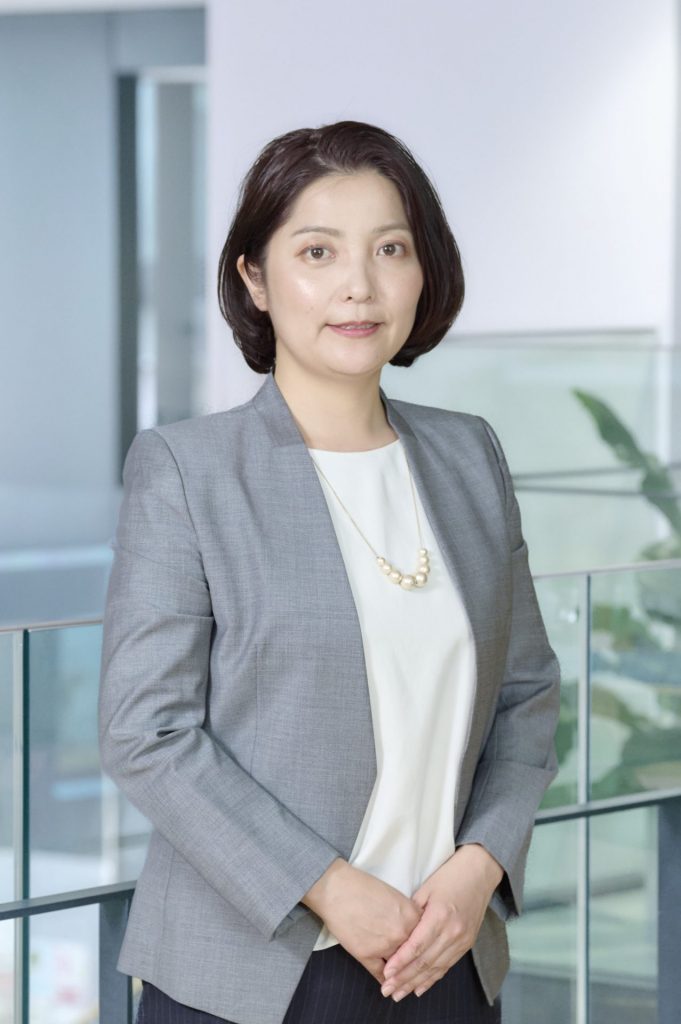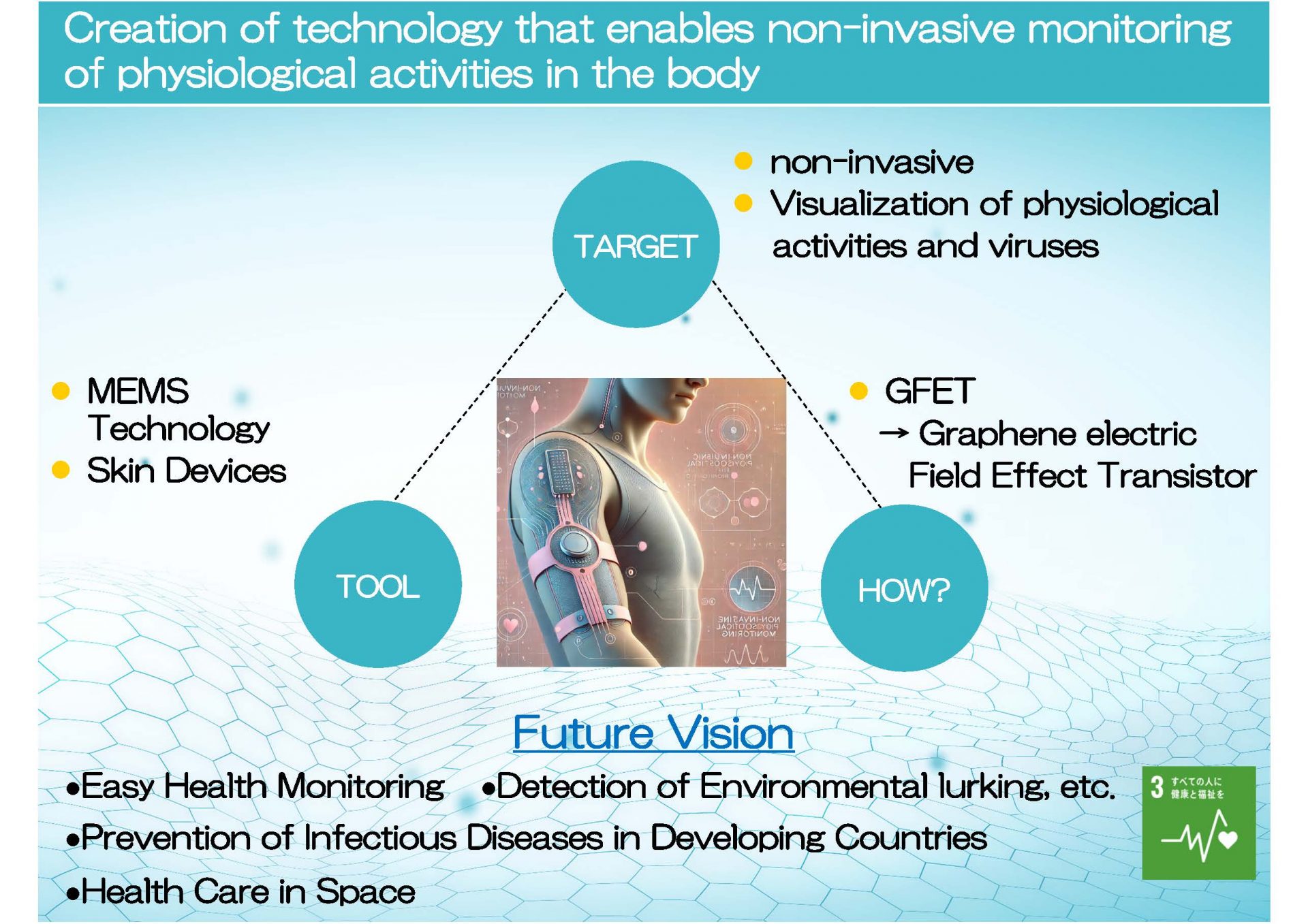Thermal engineering
Device engineering
Space engineering

UENO Ai
Starting year 2024
Nagoya University
Graduate School of Engineering
Lecturer
Research fields
Research Interests
Skin device
MEMS technology
Mass transport
Bio-design
Professional Memberships
The Japan Society of Mechanical Engineers
The Heat Transfer Society of Japan
Japan Society of Thermophysical Properties
Main research topics
This research aims to integrate “ferritin detection” x “skin device” technology as a new technology for early detection of iron deficiency anemia. Unlike conventional blood tests, this technology enables easier and faster detection of anemia by monitoring physiological activities in the body in a non-invasive method.
Background and Challenges of Research: Currently, blood tests using blood sampling are commonly used to detect iron deficiency, but these tests must be performed at a hospital and are invasive. In addition, there are two types of iron, “ferritin” and “hemoglobin,” and in early stages of hidden anemia, ferritin is reduced, and as the anemia progresses further, hemoglobin is also reduced. However, since common blood tests primarily measure hemoglobin, it is difficult to detect iron deficiency in its early stages.
Research Approach: In this study, we are developing a skin device that detects ferritin in body fluids with high sensitivity without using blood. The device is designed to be applied to the skin like an adhesive bandage to measure ferritin, an indicator of iron deficiency, from body fluids such as sweat. At the core of the technology is a highly sensitive sensor using graphene field-effect transistors (GFETs), and MEMS (microfabrication) technology is being utilized to further the device’s application.
Final Goals and Application Development: This research aims to develop highly practical medical devices based on “bio-design thinking” originating from Stanford University. In particular, the final goal is to create low-cost, high-performance devices that can be used in developing countries, aiming to realize a society in which more people can easily manage their health. Furthermore, this technology is expected to be applied not only to the early detection of iron deficiency anemia, but also to the detection of viruses in the environment and prevention of infectious diseases.
Through this research, we will establish a simpler and less invasive health monitoring technology.

Representative papers
M. Hashimoto, T. Kawakami, A. Alasli, R. Nomura, H. Nagano, A. Ueno. “JMEMS Letters. 1pt Design and Fabrication of a Micropillar-Pumped Polymer Loop Heat Pipe,” Journal of Microelectromechanical Systems, Vol. 32, No. 6, (2023) 519.
Research URL
Nagoya University researchers https://profs.provost.nagoya-u.ac.jp/html/100009411_ja.html
Laboratory Website https://www.eess.mech.nagoya-u.ac.jp/index.html
Global issues to be solved through this project
Creation of skin devices to support developing countries based on Biodesign thinking
Approximately 528.7 million people worldwide suffer from iron deficiency, with the frequency of iron deficiency in Japan reaching 50%, the highest among developed countries. The iron deficiency anemia treatment market is growing at an average annual rate of 7% and is expected to reach 3 trillion yen by 2030. Iron is essential for brain metabolism, and deficiency during fetal and early childhood can cause cognitive decline; the WHO has also declared that “iron supplementation is a cost-effective investment for a country.
Conventional iron deficiency detection methods require blood sampling, which is invasive and difficult to monitor at home. The research study is based on the use of sweat and other body fluids to detect iron deficiency. This research aims to develop a device that detects ferritin from body fluids such as sweat, and to develop a technology that can non-invasively detect iron deficiency in the early stages. This technology is based on biodesign thinking originating from Stanford University, with the final goal of creating a medical device that can be used in developing countries.
Interview
No interview
News
No related news

